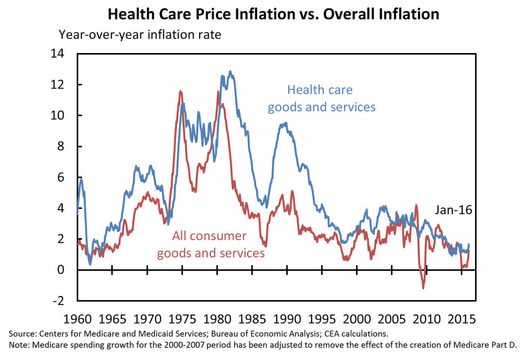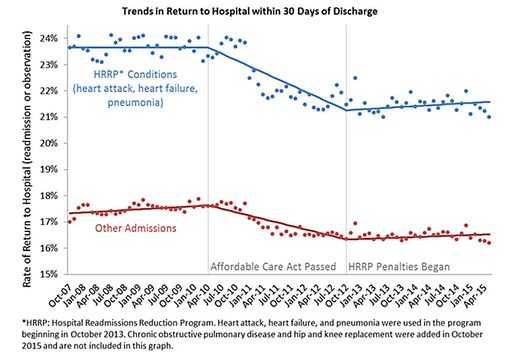As your thread title says "Obamacare Haters Refuse to Accept Reality"
Reality is that there are "no restrictions on the level of care allowed" for Medicare
Very true. But that's not the full story.
The person who posted was describing one of the unintended consequences of OBamacare regulation. And that's that hospitals are decreasing care and now decreasing care not just when the patient is in the hospital... but denying them care they should be receiving in post hospital facilities.
Its called bundled payments... and its intent was for hospitals to provide better care.. so that patients would do better and could be sent to lower levels of care or home and would stay home.
but what is occurring in hospitals around the country... not everyone.. but its becoming more and more common.. is that the hospital is tying the physicians hands on the care the patient can receive. I have friends who are physicians that are being TOLD that they cannot admit a patient to the hospital because they were just discharged.
Hospitals are now going around to assisted livings, SNF's and home healths and giving them "report cards"... in other words... if you have a patient that's been discharged from the hospital and you end up sending them back because they are ill.. the hospital is not going to send patients your way.
Its becoming more and more of a problem. I just traveled to one of my rehab facilities where we had a meeting with the hospital from this very issue. They brought up our "scorecard" and pointed to two patients that were sent back to the hospital.
We pointed out that one patient was sent by the hospital because on the day he was admitted to us from the hospital, he had severe hip pain and was unable to bear weight, the same problems he had in the hospital.. and we discovered that the hospital had missed that he had fractured his hip. He was sent back to the hospital for subsequent ORIF of his fracture.
The second patient we sent back, was discovered to be septic on admission. He was put into observation, and then they discharged him not back to our facility but to assisted living (they told the family we had no beds when by law we had to keep one open for him) . The family wanted him transferred back to the hospital after a day in the assisted living but the assisted living didn;t. Two days later he was so sick that the family simply dialed 911. the patient died before they could get him to the hospital.
He was 72 and had been in good health before developing a pneumonia and going to the hospital.




